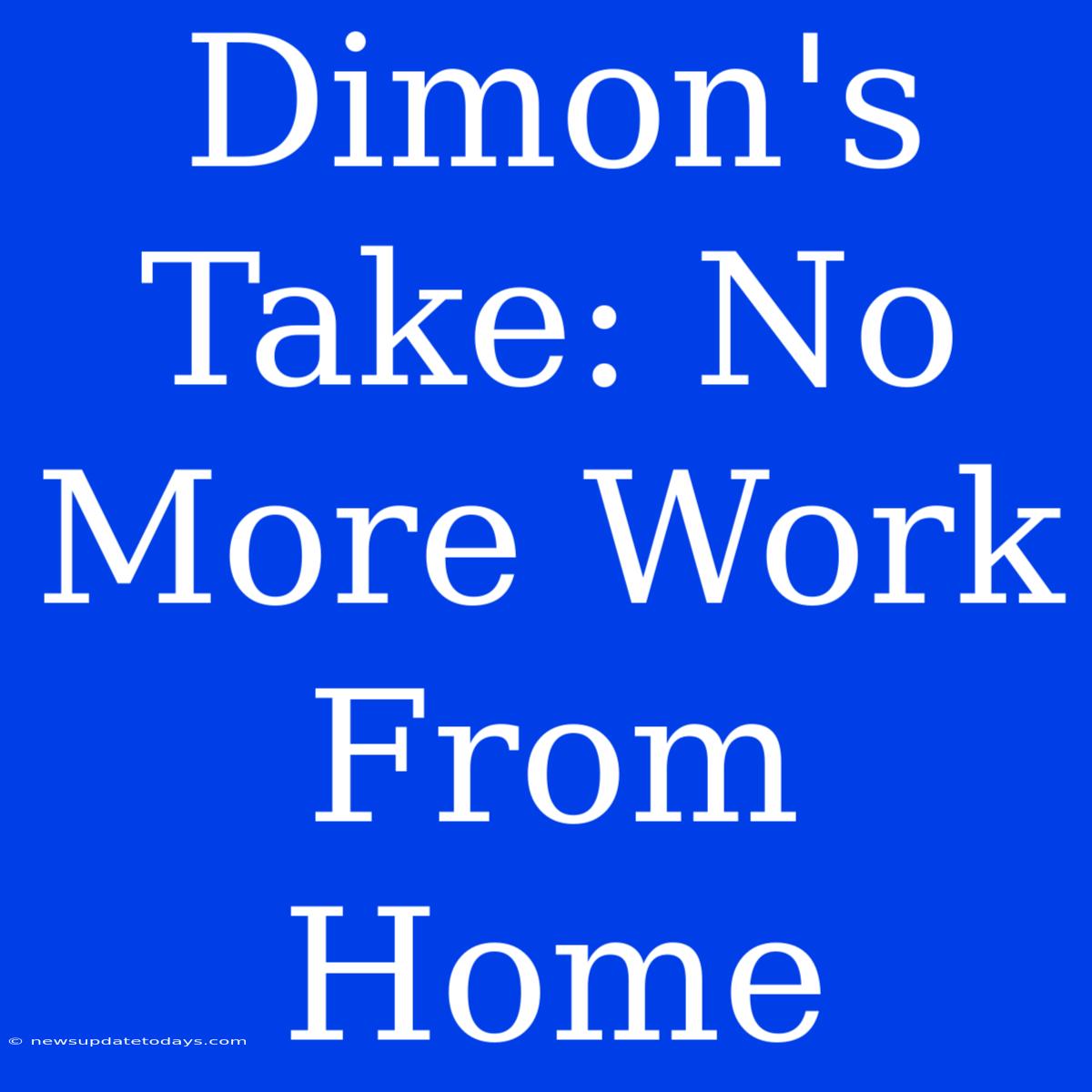Dimon's Take: No More Work From Home – A Return to the Office?
Jamie Dimon's recent pronouncements on the future of work have sent ripples through the corporate world. His firm stance against remote work, advocating for a full return to the office, has sparked a renewed debate about the efficacy and impact of hybrid and fully remote work models. This article delves into Dimon's perspective, examining the arguments for and against his position, and explores the broader implications for the future of work.
Dimon's Argument: The Case for the Office
Dimon's argument centers around several key pillars. He believes that in-office work fosters:
-
Enhanced Collaboration and Mentorship: Direct interaction, spontaneous brainstorming sessions, and informal knowledge sharing are seen as crucial for team cohesion and the development of younger employees. The mentorship aspect, often considered a byproduct of the office environment, is viewed as irreplaceable in the remote work model.
-
Increased Productivity and Efficiency: While anecdotal evidence suggests otherwise, Dimon contends that a structured office environment inherently leads to better focus and productivity. He argues that distractions at home can significantly hamper output.
-
Stronger Company Culture: Shared experiences, social interactions, and a sense of community are seen as vital components of a strong corporate culture. Dimon believes these elements are severely diluted in a remote work setting.
-
Reduced Risk and Improved Security: Concerns around data security and the potential for insider threats are arguably easier to manage within a controlled office environment.
Counterarguments: The Benefits of Remote Work
Despite Dimon's strong stance, the advantages of remote work are undeniable for many:
-
Improved Work-Life Balance: Flexible work arrangements provide employees with greater control over their schedules, leading to reduced stress and a better work-life integration.
-
Increased Employee Satisfaction and Retention: Offering remote work options can be a powerful tool for attracting and retaining top talent, particularly in competitive job markets.
-
Expanded Talent Pool: Removing geographical limitations allows companies to recruit from a wider talent pool, regardless of location.
-
Reduced Overhead Costs: Businesses can potentially reduce overhead costs associated with office space, utilities, and other infrastructure.
The Bigger Picture: Navigating the Future of Work
Dimon's viewpoint, while forceful, represents only one perspective in a complex and evolving landscape. The debate surrounding remote work isn't simply about productivity; it's about company culture, employee well-being, and adapting to changing work styles. The ideal solution may not be a binary choice between fully remote and fully in-office but a hybrid model that balances the benefits of both.
Finding the Right Balance: Companies need to carefully consider their specific industry, workforce demographics, and company culture when determining the optimal approach to remote work. A one-size-fits-all solution is unlikely to be effective. The future of work likely lies in flexibility, open communication, and a willingness to adapt to the changing needs of employees and the business.
This debate is far from over. Dimon's strong opinion provides a crucial counterpoint to the prevailing narrative around the increasing popularity of remote work, forcing a reconsideration of the various factors involved in creating a productive and fulfilling work environment for everyone. The key lies in finding a balance that works best for both the employee and the employer, respecting the individual needs and preferences while prioritizing business success.

